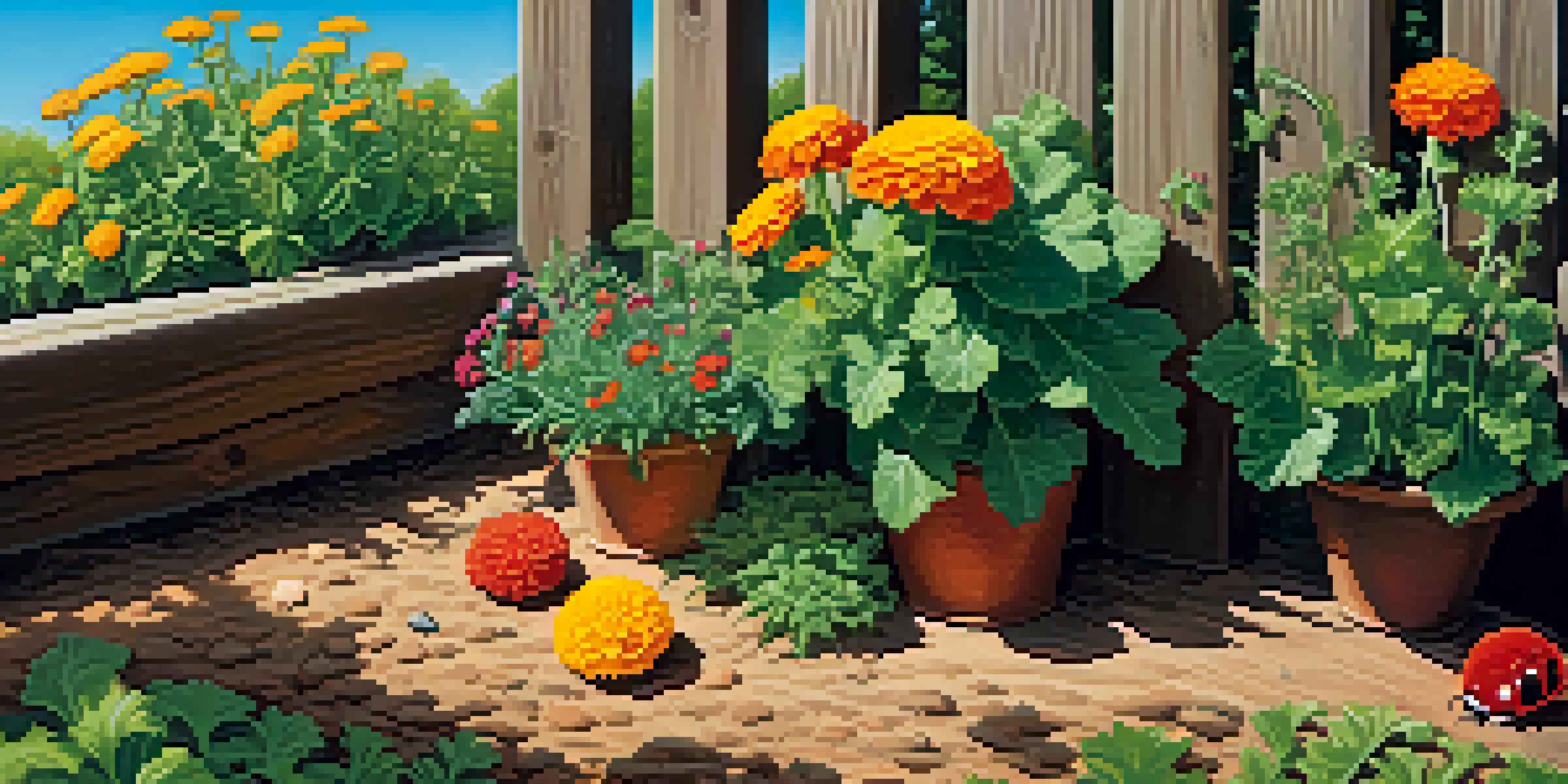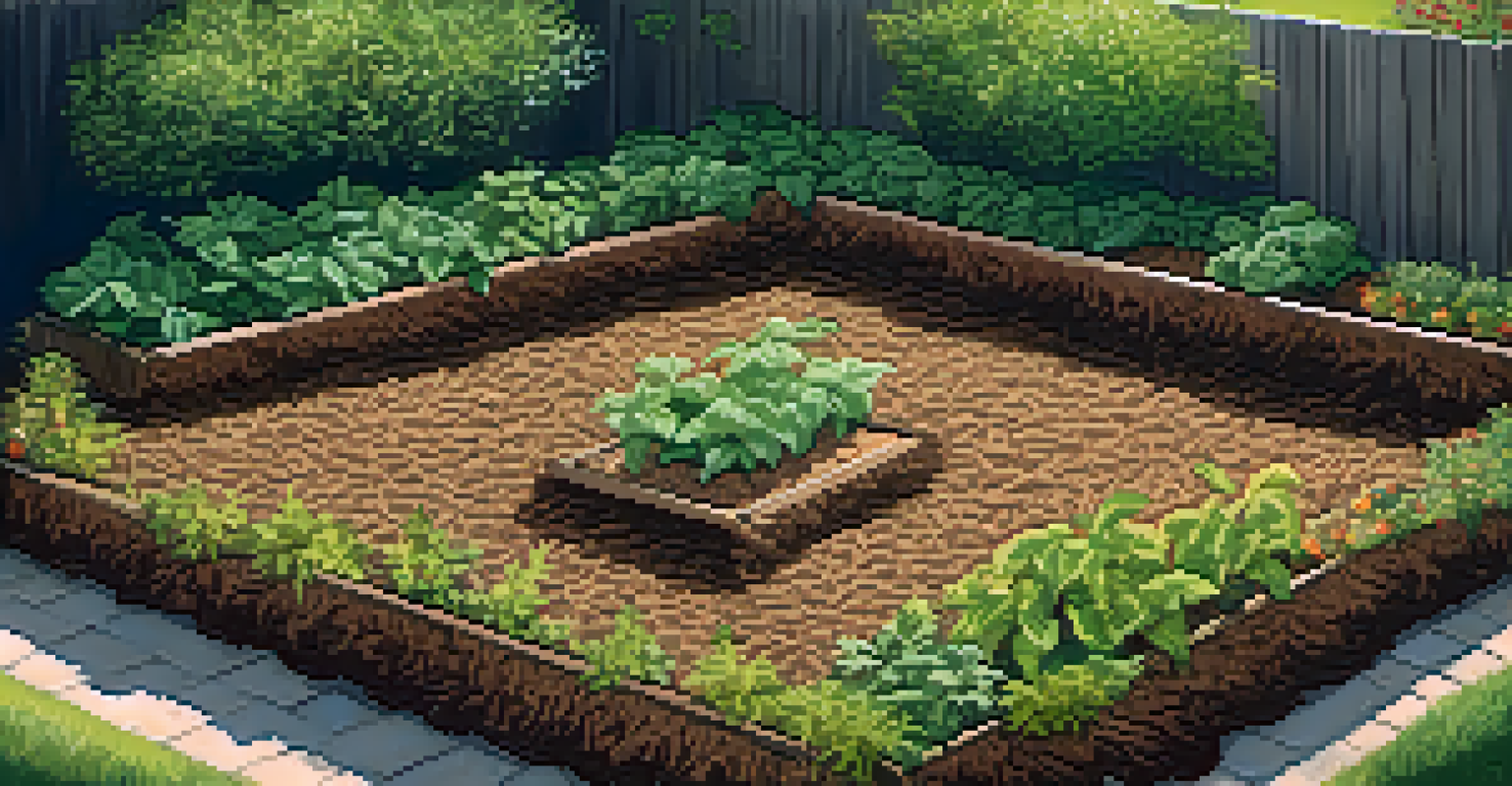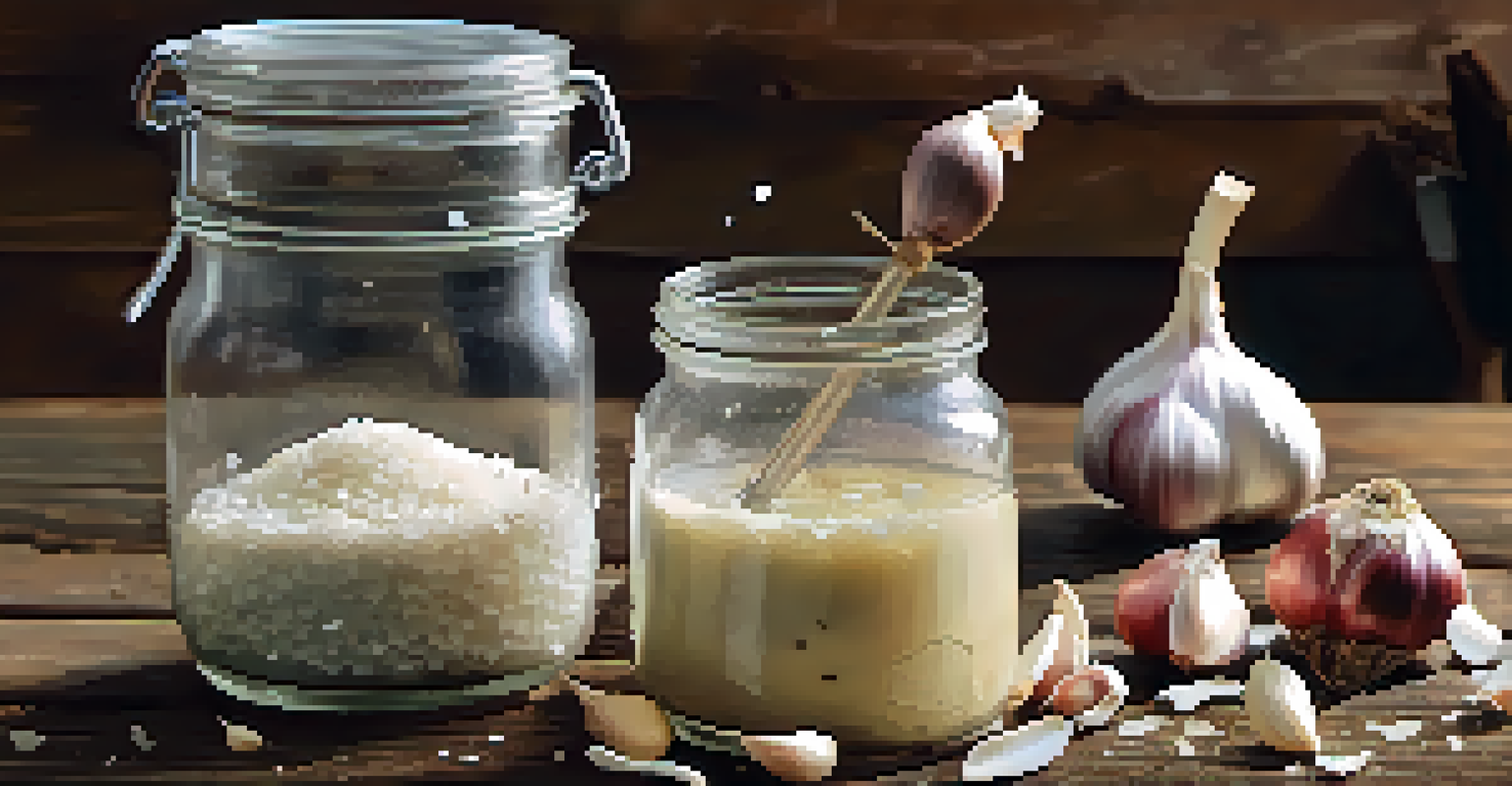Organic Pest Control: Protecting Your Garden Naturally

Understanding the Importance of Organic Pest Control
Organic pest control is crucial for maintaining a healthy garden. Unlike chemical pesticides, organic methods are designed to minimize harm to the environment, beneficial insects, and soil health. This approach not only protects your plants but also supports the ecosystem.
The best way to control pests is to work with nature, not against it.
By choosing organic pest control, you contribute to a sustainable gardening practice that prioritizes the health of your family and the planet. For instance, using natural solutions reduces the risk of pesticide residues on your homegrown fruits and vegetables, ensuring they are safe for consumption.
Moreover, organic pest control techniques often encourage biodiversity, leading to a more resilient garden. When you invite various species into your garden, you create a balance that naturally keeps pests in check, reducing the need for interventions.
Identifying Common Garden Pests
Before you can effectively manage pests, it's essential to know who you're dealing with. Common garden pests include aphids, slugs, and caterpillars, each posing unique threats to your plants. Identifying these pests early can save you from more significant headaches later on.

For example, aphids are tiny, soft-bodied insects that suck the sap from plants, often leading to stunted growth and wilting. Understanding their life cycle can help you intervene at the right moment, using organic methods to control their population without harming other garden inhabitants.
Organic Methods Protect Your Garden
Using organic pest control minimizes harm to the environment and ensures safer produce for your family.
Watching for signs of pest damage, such as chewed leaves or sticky residue, can also alert you to an infestation. By staying vigilant, you can take proactive steps to protect your garden before pests become a serious issue.
Natural Predators: Your Garden's Allies
One of the best strategies for organic pest control is to harness the power of natural predators. Ladybugs, lacewings, and birds are fantastic allies in the fight against pests like aphids and caterpillars. By creating a welcoming environment for these beneficial creatures, you can boost your garden's defenses.
Healthy soil equals healthy plants, and healthy plants can fend off pests naturally.
For instance, planting flowers like marigolds or providing insect hotels can attract ladybugs, which feast on aphids. This method not only keeps pest populations in check but also enhances the beauty of your garden.
Encouraging a diverse ecosystem makes your garden more resilient. When you support natural predators, you reduce reliance on chemical pesticides, ensuring a healthier environment for all.
Using Homemade Solutions for Pest Control
Homemade pest control solutions are easy to make and effective in managing garden pests. Simple ingredients like soap, garlic, or vinegar can create powerful deterrents. For example, a mixture of water and dish soap can suffocate soft-bodied insects without harming your plants.
Another popular recipe is a garlic spray, which can repel a variety of pests due to its strong odor. Mixing crushed garlic with water and allowing it to steep creates a potent solution that can deter unwanted visitors without harsh chemicals.
Natural Predators Enhance Pest Control
Encouraging beneficial insects like ladybugs can effectively manage pest populations without chemicals.
These DIY solutions not only save money but also give you peace of mind knowing you're using safe ingredients. Experimenting with different homemade remedies can lead to discovering what works best for your specific garden.
Companion Planting: A Strategic Approach
Companion planting is a clever way to naturally deter pests while promoting plant health. Certain plants, when grown together, can enhance each other's growth or repel pests. For example, planting marigolds alongside vegetables can deter nematodes and aphids.
This strategy not only helps manage pests but also maximizes the use of space in your garden. By understanding the relationships between plants, you can design a garden that thrives on mutual benefits.
Incorporating companion plants into your garden plan is a fun and rewarding way to foster an organic environment. This method showcases how nature can work in harmony to protect and nourish your plants.
The Role of Organic Mulch in Pest Control
Organic mulch plays a significant role in pest control by providing a barrier between pests and your plants. It helps retain moisture, suppress weeds, and can deter certain pests like slugs and snails. By creating a healthy environment at the soil level, you strengthen your plants' defenses against invaders.
Using materials like straw, wood chips, or shredded leaves can enhance your garden's health and appearance. As the mulch breaks down, it enriches the soil, promoting better plant growth while also hindering pest access.
Healthy Ecosystem Fights Pests
Maintaining soil health and plant diversity creates a balanced garden that naturally deters pests.
Incorporating mulch into your gardening routine is an easy yet effective way to protect your plants naturally. It's a simple step that yields significant long-term benefits.
Maintaining a Healthy Garden Ecosystem
A healthy garden ecosystem is your best defense against pests. By focusing on soil health, plant diversity, and proper watering practices, you create an environment that naturally discourages pests. Healthy plants are more resilient and can better withstand pest pressures.
Implementing practices like crop rotation and interplanting can also reduce pest buildup. By changing the location of your plants each season, you disrupt pest life cycles, making it harder for them to establish a foothold.

Ultimately, a thriving garden ecosystem is about balance. By nurturing your garden with organic methods, you create a sustainable environment where plants can flourish and pests are kept at bay.